Although news media are quick to portray hackers as outcasts and criminals, in fiction they are usually heroes and hacktivists, or the sidekicks who empower protagonists to save the day. What would Jack Bauer do without Chloe O’Brian? Felicity Smoak is the next best thing to a convenient “hacking arrow” on Arrow. And don’t forget that on Chuck, the title character was a nerd who could do things with technology that the supposedly cooler CIA spies couldn’t.
When I began writing my YA thriller, The Silence of Six, one of my biggest goals was to avoid the Hollywood cliché of making hacking look like magic. Five minutes of mashing the keyboard and you’re inside the Pentagon? That doesn’t happen, unless someone hands you a quick and easy exploit to work with. Five months of research and social engineering and gradually prying your way into the system is more like it.
I read a variety of nonfiction books to make sure the technology and terms I used in The Silence of Six were as accurate (or at least convincing) as possible, but as always, I turned to fiction for inspiration. Here are some of the books that helped me crack the code.
Little Brother by Cory Doctorow
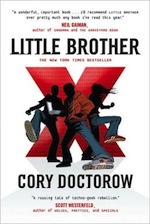 Doctorow’s chilling tale of four teenagers taking on Homeland Security with a bunch of hacked XBoxes to defend our civil liberties is the gold standard in YA hacker novels. It’s entertaining and informative, without getting too didactic—a great way to make young readers, or anyone really, more aware of social injustices we are still facing today. It’s also a terrific primer on hacking culture, for the curious. I’m just saying, you can actually do all that stuff if you wanted.
Doctorow’s chilling tale of four teenagers taking on Homeland Security with a bunch of hacked XBoxes to defend our civil liberties is the gold standard in YA hacker novels. It’s entertaining and informative, without getting too didactic—a great way to make young readers, or anyone really, more aware of social injustices we are still facing today. It’s also a terrific primer on hacking culture, for the curious. I’m just saying, you can actually do all that stuff if you wanted.
The Girl with the Dragon Tattoo by Stieg Larsson
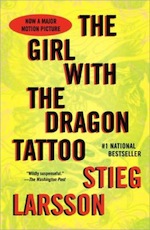 You’ve probably seen the Fincher movie, but the novel really drives home the amount of work and research that goes into hacking and solving decades-old mysteries—kind of like the difference between Gandalf popping into the library and learning about the One Ring in the film of The Fellowship of the Ring and him spending 17 years digging up the truth in the book. It should be dry reading, but it’s fascinating to follow Mikael Blomkvist and Lisbeth Salander as they meticulously piece together the puzzle, even if most of the “action” happens at a desk with stacks of photos or company records. The rest of Larsson’s Millenium series is also worth checking out, and you should watch the Swedish films if you have the chance.
You’ve probably seen the Fincher movie, but the novel really drives home the amount of work and research that goes into hacking and solving decades-old mysteries—kind of like the difference between Gandalf popping into the library and learning about the One Ring in the film of The Fellowship of the Ring and him spending 17 years digging up the truth in the book. It should be dry reading, but it’s fascinating to follow Mikael Blomkvist and Lisbeth Salander as they meticulously piece together the puzzle, even if most of the “action” happens at a desk with stacks of photos or company records. The rest of Larsson’s Millenium series is also worth checking out, and you should watch the Swedish films if you have the chance.
Hacktivist by Alyssa Milano, Jackson Lanzing, and Colin Kelly
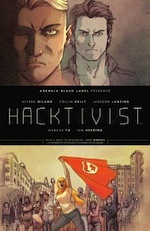 That’s right, this graphic novel was dreamed up by the same Milano of Who’s the Boss and Guardians of the Galaxy fame, who it turns out is very politically conscious. Comics may be the best way to represent hacking without resorting to the sometimes silly CGI representations in movies, or the monotony of someone typing at a keyboard for days. And Hacktivist is a timely story about a pervasive social network and two hackers who support activist efforts on the other side of the world, illustrating the positive power of media to effect change and how hackers can use their skills to do more than inconvenience millions of Playstation users.
That’s right, this graphic novel was dreamed up by the same Milano of Who’s the Boss and Guardians of the Galaxy fame, who it turns out is very politically conscious. Comics may be the best way to represent hacking without resorting to the sometimes silly CGI representations in movies, or the monotony of someone typing at a keyboard for days. And Hacktivist is a timely story about a pervasive social network and two hackers who support activist efforts on the other side of the world, illustrating the positive power of media to effect change and how hackers can use their skills to do more than inconvenience millions of Playstation users.
Alif the Unseen by G. Willow Wilson
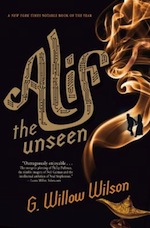 Okay, in Alif the Unseen hacking actually is magic, but it’s a stunning piece of fiction that is unlike anything I’ve ever read. It’s both contemporary and steeped in some of the oldest stories in the world, a cyber thriller that beautifully blends technology and fantasy—as well as a fascinating, real, moving look into the Middle East and the troubled life of a young hacker-for-hire. Plus there’s some romance! All I can say is you have to read it.
Okay, in Alif the Unseen hacking actually is magic, but it’s a stunning piece of fiction that is unlike anything I’ve ever read. It’s both contemporary and steeped in some of the oldest stories in the world, a cyber thriller that beautifully blends technology and fantasy—as well as a fascinating, real, moving look into the Middle East and the troubled life of a young hacker-for-hire. Plus there’s some romance! All I can say is you have to read it.
Ghost in the Wires: My Adventures as the World’s Most Wanted Hacker by Kevin Mitnick
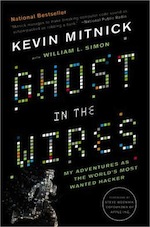 This memoir reads like fiction, but it’s all the more incredible because everything in it really happened. Mitnick is my go-to source for information on social engineering: the art of hacking people to get into places and systems you don’t belong. Starting out as a “phone phreak” like many of his generation of hackers, he pulled off some legendary exploits in person and from behind his computer screen. His storytelling style is compelling and breezy, every bit as exciting as a contemporary thriller, somewhat reminiscent of Frank W. Abagnale and Stan Redding’s Catch Me If You Can.
This memoir reads like fiction, but it’s all the more incredible because everything in it really happened. Mitnick is my go-to source for information on social engineering: the art of hacking people to get into places and systems you don’t belong. Starting out as a “phone phreak” like many of his generation of hackers, he pulled off some legendary exploits in person and from behind his computer screen. His storytelling style is compelling and breezy, every bit as exciting as a contemporary thriller, somewhat reminiscent of Frank W. Abagnale and Stan Redding’s Catch Me If You Can.
Originally published in March 2015 as part of our Five Books About series.
 E.C. Myers was assembled in the U.S. from Korean and German parts. He is the author of the Andre Norton Award–winning novel Fair Coin, Quantum Coin, and The Silence of Six, a thriller about teenage hackers and government conspiracies. You can find traces of him all over the internet, especially on Twitter @ecmyers.
E.C. Myers was assembled in the U.S. from Korean and German parts. He is the author of the Andre Norton Award–winning novel Fair Coin, Quantum Coin, and The Silence of Six, a thriller about teenage hackers and government conspiracies. You can find traces of him all over the internet, especially on Twitter @ecmyers.










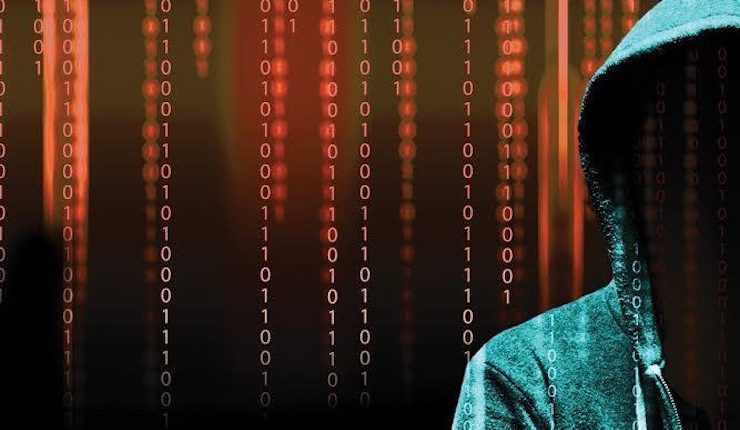
Let’s not forget the Punisher’s sometime 80s sidekick Micro!
I think anyone who reads Alif the Unseen for a hacker protagonist will be disappointed. Because not only is the hacking the standard TV/Movie style, but it lacks even the feel of hacker culture. Contrast this with Annalee Newitz’ Autonomous, which isn’t about computer hacking per se but still feels steeped in real world maker, free software, transhuman cultures. You’d think Cory Doctorow would be able to give this feeling too, given his background and excellent read of internet culture, but I never get the feeling while reading his books that the characters actually have any deep understanding of technology any more than I feel Harry Potter has put any real effort into studying magic
I still prefer old-school hacker accounts personally, like Steven Levy’s Hackers, Tracy Kidder’s The Soul of a New Machine, and Clifford Stoll’s The Cuckoo’s Egg. The first two were written by journalists and have a strong story line to them, and the last reads like a technothriller starring an astronomy geek.
The Illuminae Files fit the bill. The series has been a fun read. Looking forward to getting the 3rd one soon.
@2, another good old school book is “The Hacker Crackdown, Law And Disorder On The Electronic Frontier” by Bruce Sterling, published in 1992. It’s available online now in various places, such as http://www.mit.edu/hacker/hacker.html
I’m surprised I’m the first to mention Hiro Protagonist from Snow Crash.
Trent the Uncatchable, from Emerald Eyes, The Long Run, and The Last Dancer, by Daniel Keys Moran. He was a Player (hacker) in the 2060s and 2070s, in books written in the late 1980s and early 1990s, so some terminology carries over from that time. In places, what he does seems so easy. In others, he mentions spending tens of thousands of hours coding to get to where he could do those things.
Now, was he a hero? Depends on your definition. He was a thief … and a liar … and the Unification government on Earth listed him as their most wanted … but he opposed the heavy-handed militaristic Peaceforcers, so … you decide.
@5 I am even more surprised that I am the first to metnion Case from Neuromancer. Granted he is an antihero, so maybe he doesn’t qualify. For that matter, Gibson’s entire Sprawl trilogy Neuromancer, Count Zero and Mona Lisa Overdrive starred a series of antihero hackers. All three books are worth a read just for the experiments that Gibson does with his prose.
How about. “The Long Run” by Daniel Keys Moran to this list? Great book. Wish the author was still publishing.
I’d like to suggest the hero of John Brosnan’s “The Opoponax Invasion”, Joster Rack. Rack is a sort of Robin Hood figure in the 23rdC, stealing both cash and secrets from nasty megacorps. One of those secrets turns out to be the impending invasion and enslavement of the human race by the eponymous Opopnax.
https://www.goodreads.com/book/show/1348021.The_Opoponax_Invasion
First, the original hunt by a [true] heroic hacker: Cliff Stoll’s Cuckoo’s Egg. In the realm of fiction, the pre-cyberpunk cyberpunk novel, John Brunner’s Stand on Zanzibar.
How about “Trouble and her Friends” by Melissa Scott? a very early cyberpunk/ hacker story but well crafted with interested characters.
I just finished Warcross by Marie Lu and it fits this category nicely.